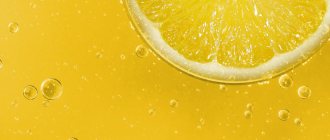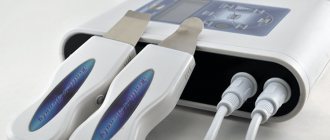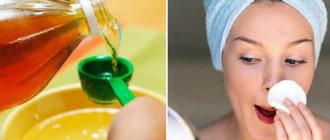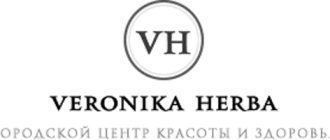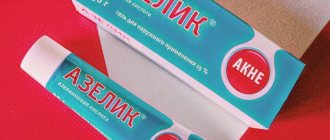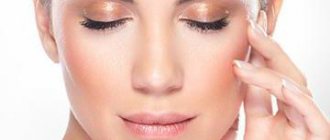Useful trace elements, minerals, vitamins, pectins and polyphenols make the apple one of the most valuable ingredients used in home cosmetology. And apple cider vinegar, which is part of the fruit, allows you to create effective cleansing products, one of which is apple peeling . The procedure can be carried out not only in the salon, but also at home. The astringent, drying and soothing effect of the compositions accelerates cellular regeneration and exfoliation of the stratum corneum of the epidermis.
Description of peeling
The apple contains many useful trace elements, minerals and various polyphenols, pectins, vitamins and other substances, so it is considered one of the healthiest fruits for humans. One of the substances included in its composition is apple cider vinegar, the properties of which make it possible to successfully use cosmetic preparations made from apples to cleanse the skin.
The effect of apple cider vinegar on the skin has an astringent, drying and soothing effect; when applied to the skin, old cells are exfoliated and young cells are intensively regenerated.
In general, apple peeling is a special case of fruit peeling, in which the concentration of malic acid, among other fruit acids, is 10%-15%. At the same time, peeling with malic acid is characterized by moderate results in smoothing out deep wrinkles and scars, but effectively helps in polishing and evening out the complexion and increasing the firmness and elasticity of the skin.
Indications for use
Apple peeling helps improve skin condition after 25 years, which worsens under the influence of the following factors:
- Aggressive influence of environmental factors.
- Inactive lifestyle.
- Lack of sleep.
- Bad habits.
After 35 years, apple peeling helps improve complexion, as the natural product helps strengthen thin capillaries.
Apple peeling is carried out in the presence of the following indications:
- unhealthy complexion;
- decreased skin elasticity;
- acne;
- comedones;
- pore expansion;
- pigmentation.
Properties of the active component
The active ingredient, as mentioned above, is malic acid.
(aka malonic acid, hydroxysuccinic acid, E296, malic acid). It is obtained from fruits (unripe apples, grapes, rhubarb, rowan fruits, barberries, gooseberries and raspberries) or synthetically.
Malic acid is an intermediate metabolic product in living organisms. In the glyoxylate and tricarboxylic acid cycles and during gluconeogenesis, malic acid is formed in the form of malate. Under the influence of enzymatic reactions, malate can be converted into oxaloacetate, fumarate, and pyruvate.
Action of malic acid:
1. antioxidant 2. capillary strengthening 3. keratolytic 4. hydration 5. immunostimulating 6. Bacteriostatic and anti-inflammatory 7. Regenerative 8. restores the lipid layer of the skin.
Malic acid is found in apple cider vinegar, which is widely used for at-home peeling. Apple cider vinegar is an excellent acidity regulator for the skin. By noticeably shifting its acid-base balance towards increasing acidity, it demonstrates antibacterial properties, creating conditions that suppress the activity of harmful bacteria, viruses and fungi. This way you can get rid of skin irritation and inflammation. At the same time, restoration of the acid-base balance of the skin and its natural protective functions after the apple peeling procedure occurs in a short time (in most cases, no more than one week) by itself. Exposure to apple cider vinegar also leads to the disappearance of acne and clearing of pores.
Apple cider vinegar contains a large number of amino acids, so it helps to launch mechanisms of intensive cell regeneration, increased collagen production, protection from the harmful effects of free radicals, as well as replenish the deficiency of useful substances in skin cells, including vitamins (A, B1, B2, B6 , C and E), acids (lactic, citric, malic, oxalic), trace elements (potassium, calcium, magnesium, sodium, iron, silicon, copper, sulfur, phosphorus) and enzymes.
Efficiency of the procedure
As a result of the use of vinegar compositions, it is possible to significantly improve the appearance of the skin. With regular use, many observe an increase in elasticity and restoration of an even, healthy tone.
Naturally, in one procedure it will not be possible to whiten pigmentation or smooth out lumpy relief. But with the course, a lasting transformation is observed. Gentle compositions do not injure the skin; the effect is directed only to the surface layers.
Therefore, to polish the relief, get rid of atrophic scars and scars, it is worth using the services of a professional cosmetologist.
Important! The acidity of home peeling does not exceed 20%, and to affect the middle dermal layers, the concentration must be above 30%.
Effect of the procedure:
- even, healthy tone;
- pores narrow;
- the number of facial wrinkles decreases;
- inflammation goes away;
- the secretion of glands is reduced, preventing the appearance of acne.
It will take 8 to 10 sessions to achieve the desired results.
Indications and contraindications
Indications
1. Hyperpigmentation 2. Chrono and photoaging 3. rosacea and telangiectasia 4. General skin atony (flabby, flabby and sagging skin) 5. Hyperkeratosis (slow process of exfoliation of cells of the stratum corneum) 6. Mild form of acne to soften comedones and normalize sebum secretion
Contraindications
1. Allergy to one of the components of the peeling composition 2. Herpes in the acute stage 3. Pregnancy and lactation 4. Damage to the skin 5. Neoplasms 6. Skin diseases 7. Acute inflammatory diseases 8. Chronic diseases in the acute stage
Contraindications to the use of vinegar peeling
There are a number of contraindications to peeling:
Cuperosis or capillary mesh on the face. The peeling composition aggravates the vascular problem. Couperose skin tolerates exfoliation with mandelic acid more easily.
Skin damage, open wounds. If you can't wait to do the procedure, cover the wound with Vaseline, silicone makeup primer, or cover it with a band-aid.
Herpes in the acute stage. Peeling provokes microtraumas of the epithelium, and herpes infection flourishes.
Hypersensitivity reaction to acidic agents.
Pregnancy. There are no studies proving the safety of vinegar while pregnant.
Pros and cons compared to other types of peeling
pros
One of the main advantages of apple peeling is the ability to use it at any time of the year. It is useful and effective for any age group, is used for people with problematic and sensitive skin, and is indicated for rosacea.
Apple peeling contains no mechanical abrasives. The cleansing process occurs due to the softening of the bonds between the cells of the stratum corneum and the epidermis, which is a consequence of the effects of acid.
Apple peeling effect
1. Complexion is evened out, redness is removed 2. Pigment spots are reduced 3. The acidic pH of the skin is restored 4. Small wrinkles are smoothed out 5. The skin becomes smooth and soft 6. Skin turgor and elasticity increases
Minuses
Since apple peeling is light, superficial, it has a less pronounced effect compared to other peels (glycolic, salicylic), it will not remove wrinkles and scars.
Preparation of apple peeling
Homemade apple cider vinegar is the most effective.
In this case, you can guarantee the presence of beta-carotene, which is a natural antioxidant that neutralizes free radicals, as well as vitamins, amino acids, pectins and enzymes. There are several recipes for making apple peeling at home. For example, apple cider vinegar is diluted in water in a ratio of 1:8 and cloves and lavender are added. The resulting mixture is infused for a week in a dark place, with occasional shaking. The resulting peeling solution is stored at low temperature (in the refrigerator). You can also use honey (1 tablespoon), fine salt (1 teaspoon) and apple cider vinegar (1 tablespoon) to prepare apple peeling. All these components are mixed and the resulting mixture is immediately ready for the procedure. Another simple recipe for making an apple peel that is immediately usable is to mix two tablespoons of apple cider vinegar with 0.5 liters of water. In addition, many cosmetic companies produce ready-made apple peels. In many cases, they are made with the addition of various auxiliary substances that improve the effectiveness and expand the range of action of the procedure. For example, sugar cane and maple fruit extract moisturize and achieve a calming effect, while deeper cleansing is provided by extracts of papaya, orange, gypsophila root and blueberry, a calming effect due to calendula flowers, and an antioxidant effect due to the addition of wild apple extract.
Pre-peeling preparation
The first stage of pre-peeling preparation of facial skin for the procedure is makeup removal and cleansing of the skin. To do this, use a cleansing foam or gel for washing. Then the skin is degreased and toned using lotion according to skin type. When using peeling at home (low malic acid content), you can steam your face to facilitate the process of removing dead skin. To do this, you can direct a stream of hot water from the shower into your face or use a terry towel soaked in hot water and slightly wrung out - it is applied to your face and left for 30 seconds. This procedure is performed several times until the skin is moderately steamed.
Stages of apple peeling
In salons, apple peeling most often includes other soft fruit acids (mandelic and lactic), the total acid content is about 25%. The peeling mixture is applied with a fan brush to the face, neck and area around the eyes. Exposure time 10 minutes. Then neutralization is carried out according to the protocol using a special alkaline agent or water).
Apple peelings for home use are presented in the form of gommage. Peeling gommage is applied in an even thin layer to the skin of the face and neck, except for the paraorbital zone and the lip area. When the composition dries (after about 1-2 minutes), you need to roll the gommage into pellets with light circular movements. You should start applying the product from the chin area along the massage lines upward. To do this, apply a small amount of peeling from the tube to your fingers, lightly stretch the skin with one hand, and use the middle and ring fingers of the other to make circular movements. When you have rolled up all the product, wipe your face with warm water and toner.
Another way to perform the procedure is to apply a cotton or linen napkin soaked in self-prepared apple peeling to your face. In this case, the area of their contact should be maximum. This operation is repeated for normal skin for 10 - 15 minutes at intervals of 1 - 2 minutes. Oily, porous skin requires a longer procedure, while dry and sensitive skin requires a minimum number of operations. The final step is to wash your face with warm water and massage it with a terry towel along the massage lines with light movements to finally free the surface of the skin from dead cells. After this, the face is rinsed generously with water, lightly blotted with a towel and moisturizer is applied to it. The slight redness of the face that occurs after the procedure completely disappears after 20 minutes.
The final step in all cases is to apply cream according to your skin type and it is advisable to use a sunscreen with SPF of at least 20.
Number of procedures
The frequency of the procedure for oily and normal skin is 2 times a week, and for dry and sensitive skin – 1 time a week. A course of 10-15 procedures.
Opinion of cosmetologists
Professional cosmetologists use acetic acid-based materials to perform peeling programs.
The user writes about the differences between trichloroacetic and monochloroacetic acid, the more aggressive action of the latter.
A participant had questions about the use of chloroacetic acid for a midline peel. Asks colleagues about their results of the procedure course.
A cosmetologist writes about choosing an experienced professional; risks exist only when contacting an unqualified specialist.
Possible complications after apple peeling
When using apple peeling on dry skin, there is a high probability of it drying out, so throughout the course you should carefully monitor the condition of the skin and use moisturizers. Apple peeling is superficial and does not cause serious complications; no peeling is observed. In rare cases, dry, sensitive and thin skin may cause slight flaking in the cheek area, itching and red spots. You should use a series of cosmetics for sensitive skin prone to irritation in your home care.
Facial hyperemia is possible, which goes away on its own for the first few hours after peeling. Creams with soothing ingredients should be used. An exacerbation of herpes is also possible. Prophylaxis should be carried out before performing the procedure.
Also, do not forget about the intolerance of some skin types to acids. To determine this, apply a small amount of peeling to a sensitive area of skin, such as the wrist, and wait a couple of minutes before rinsing. If redness or irritation occurs in this area, it is better to avoid using apple peeling. If it gets into your eyes, rinse them immediately with water. If the recommended dosage or exposure time is exceeded, peeling, itching and red spots may occur.
How to care for your skin after procedures
Properly performed apple peeling for the face does not lead to long-term skin restoration. The regeneration period lasts about three days. At this time, it is enough to use a cleansing tonic based on boiled water with the addition of a small amount of essence (no more than a teaspoon per glass) and apply a moisturizer. This will help not only consolidate the effect of peeling, but also speed up the regeneration of the epidermis.
Prices and brands of peelings
The cost of an apple peel will depend on where you will peel it - in a salon or at home. In the salon, you will pay on average from 2000 to 3500 rubles for one procedure. For home use, you can purchase apple peels from different companies; the cost of one jar or tube varies on average from 220 to 600 rubles. The effect of home peelings is much less than that of salon procedures, since they contain a minimal percentage of acid.
Manufacturers of apple peeling
Home series:
1. Apple peeling gel gommage - Apple juicy peeling gel, Mizon (Korea)
2. Massage cream (peeling roll) “Green Apple” - Appletox Smooth Massage Peeling Cream, Tony Moly (Korea)
3. Apple peeling gel - Vov-Apple AHA Peeling gel, VOV (Korea)
4. Peeling roller “Universal Apple” - Spa Technology TianDe, Great Wall Cosmetics Factory (China)
5. Peeling gel with green apple extract - Apple All in One Peeling Gel, Baviphat (Korea)
6. Peeling Green Apple for sensitive skin - Green Apple Peel - Sensitive, Juice Beauty (USA)
Salon peelings:
1. Radiant peeling – Illuminize Peel (Skinmedica, USA)
2. AHA Almond-Apple Peeling 25% – Almond/apple pell lotion, Eldan Cosmetics (Switzerland)
Tags: peeling
Market Analytics
- Global cosmetics market 2022: an unprecedented test for the global cosmetics industry
- Top 10 Cosmetic Research and Development of 2022
- 2020 in the beauty industry – innovation without borders
Convenient search for beauty salons on our website
Beauty salons in Moscow Beauty salons in St. Petersburg Beauty salons in Ekaterinburg Beauty salons in Novosibirsk
Latest blog posts on our website
- Naturecream / Properties of the “Sunny” oil itself
- Naturecream / “Sugar” wrinkles - or what glycation can do
- Naturecream / Esterified oils
- Naturecream / Arnica - the magical plant of alchemists
- Naturecream / Tremella Extract - Snow Mushroom Detox for Skin
- Prostye-sovety / How to visually enlarge your lips with makeup
- Naturecream / Apricot kernel oil for face
- Naturecream / MATRIXYL3000 - the best skin elasticity stimulator
- Naturecream / SPF in Natural Oils
- Naturecream / Geranium (Pelargonium) oil for skin health and beauty
Latest forum topics on our website
- Natalya / How to properly make a gelatin mask?
- Mrs._Smith / Badly sunburned! What to do?((
- Ice / Is it necessary to combine fitness classes with a diet?
- Antonova / What can be used for hair loss?
- Radio operatorKat / Who was on a protein diet?
Reviews about the procedure
Apple peeling for the face [Leave a review]
Leave your feedback about this procedure (it will appear on this page after moderation)
In this form, describe only
your personal
experience of undergoing the procedure.
In order to leave a comment regarding the content of the article, use another form - in the “comments” block at the bottom of the page.
Other articles in this section
| Chemical peeling for the face Chemical peeling for the face is a cosmetic procedure aimed at improving the quality of the skin. This is the most gentle of all types of exfoliation. In this case, it is not mechanical exfoliation, which does not exclude a violation of the integrity of the skin, but the dissolution of dead cells of the surface layer of the skin upon contact with the peeling components. |
| ABR peeling for the face ABR peeling is a combined medium peeling that is used mainly for oily problem skin. This is one of the best remedies for correcting post-acne and stagnant spots. ABR peeling refers to the process of skin exfoliation under the influence of drugs with the following active ingredients: A – AHA (alpha hydroxyl acids); B - BHA (beta-hydroxy acids); R – vitamin A (retinol). |
| Antioxidant Red Peel for the face Red Peel is an antioxidant two-phase chemical peel developed by the Italian company GOES. It belongs to the new generation of chemical peels. The originality of the peeling lies in the combination of pyruvic acid, ROC antioxidant complex, nanomolecular encapsulated retinol and hyaluronic acid. |
| Ultrasonic peeling or ultrasonic facial cleansing Ultrasonic peeling is a procedure that provides hardware facial cleansing, exfoliation, and renewal of the surface layers of the skin under the influence of high-frequency vibrations. This procedure is also called ultrasonic facial cleansing. Experts recognize ultrasonic peeling as one of the mildest types of cleansing, which allows you to remove only the superficial layers of the epidermis, eliminate acne and dirty comedones, smooth out wrinkles, improve hemodynamics, provide natural hydration and lifting. |
| Phenol peeling for the face Phenol peels refer to skin exfoliation procedures performed using carbolic acid (phenol). Deep peeling affects all layers of the epidermis, right down to the papillary layer. The extreme length of the rehabilitation period, reaching 12 months in some cases, and the high risk of severe complications require a particularly careful approach. |
| Microcrystalline dermabrasion (mechanical peeling) for the face In the fight for an impeccable appearance with smooth, satiny skin, without scars, stretch marks and other unaesthetic defects, many methods have been invented. Microcrystalline dermabrasion or mechanical peeling is one of them. It is quite effective and is able to cope with defects such as scars, scars and stretch marks, and also has all the properties of mechanical peeling. |
| Retinoic peeling (yellow peeling) for the face Retinoic peeling is a cosmetic procedure characterized by a short recovery period. It effectively cleanses the skin surface of all kinds of impurities, has an anti-inflammatory effect, provides the skin with a healthy glow, improves the relief and structure of the skin and has a lifting effect. |
| Pyruvic peel (Green Peel) for the face Pyruvic peeling, also known as green peeling (Green Peel), is an exfoliation of the skin using a drug whose main active ingredient is pyruvic (pyruvic) keto acid. Using a product containing pyruvic acid, you can achieve superficial or superficial-medium exfoliation. In terms of depth of action, pyruvic peel is superior to glycolic peel, but comparable to trichloroacetic peel (TCA). |
| TCA peel or trichloroacetic acid peel for the face TCA peel is a type of chemical peel that affects the middle layers of the epidermis. At the same time, the skin is cleansed at sufficiently deep levels. This peeling is carried out using trichloroacetic acid (TCA), a highly toxic analogue of acetic acid that is absorbed through the skin and has a pronounced bactericidal, anti-inflammatory and cauterizing effect. |
| Complications after peeling and dermabrasion. Methods for their correction A significant number of dermatocosmetological procedures are associated with primary damage to the epidermis and dermis. Most complications that develop as a result of iatrogenic intervention are nonspecific and are formed both as a result of direct damage to the integrity of the skin and as a result of the development of an inflammatory reaction. Proper preparation of the skin and management of the rehabilitation period can significantly reduce the risk of complications. |
Preparatory stage
Unlike salon procedures, home peeling can be used throughout the year. But, like any deep cleansing, it is contraindicated during periods of maximum solar activity. The use of acidic compounds on hot summer days can lead to pigmentation, irritation of the skin, and a decrease in natural immune defense. Also, to achieve a pronounced effect, you should follow a number of rules:
- use gommages and scrubs with small abrasive particles for about a week to loosen the keratinized epithelium and deeper penetration of the active components of the peeling;
- exclude the use of comedogenic cosmetics, use light BB creams for toning;
- the day before, do not introduce allergenic or new foods into the diet; it is difficult to predict the skin reaction with additional aggressive exposure;
- Be sure to maintain a water regime, taking at least 2 liters of clean water per day, this will avoid dryness and speed up the renewal process.
Before use, test the composition for a possible allergic reaction. For burning and irritation, it is necessary to reduce the acid concentration.

